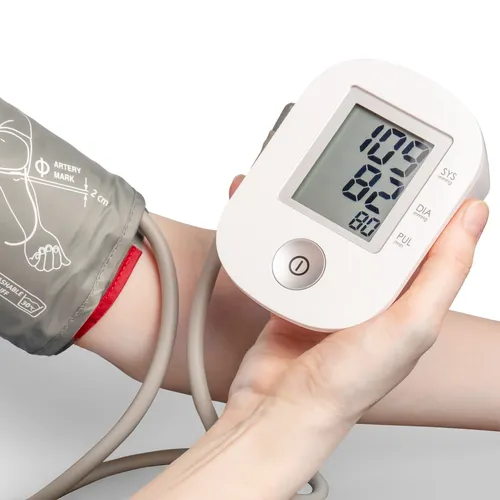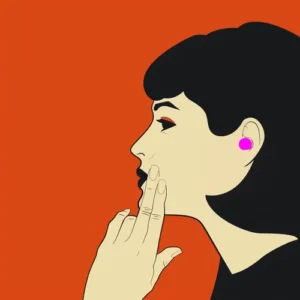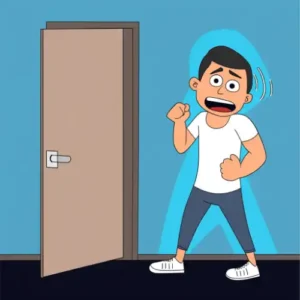The Dangers of Uncontrolled Blood Pressure
High blood pressure, also known as hypertension, is a silent but dangerous condition. High blood pressure is a global epidemic. In the UK alone, around 1 in 4 adults have high blood pressure, many without realising it. Left uncontrolled, hypertension puts you at major risk of developing several severe health complications including stroke, heart disease, heart failure, kidney disease, and vision loss.
What Level of High Blood Pressure is Dangerous?
The NHS defines high blood pressure as consistently having readings of 135/85 mmHg or above. The higher your blood pressure and the longer it stays elevated, the greater your risks.
However, you don’t need to reach severely high levels like 180/120 mmHg to be in danger. If your blood pressure is often 135/85 mmHg or more, your chance of developing related health problems rises significantly.
For ideal protection, you should aim for a target below 120/80 mmHg unless advised otherwise by your doctor. People with conditions like diabetes or kidney disease may need tighter control of their blood pressure.
Major Health Risks of Uncontrolled Blood Pressure
Here are some of the most concerning complications that can arise from leaving high blood pressure untreated:
Cardiovascular Disease – Hypertension damages blood vessels and leads to a dangerous buildup of fatty deposits inside arteries, called atherosclerosis. This narrows the space for blood to flow, eventually blocking it off entirely. When this affects arteries feeding the heart or brain, it causes heart attacks and strokes.
Enlarged Heart – High blood pressure forces the key pumping chamber of the heart, the left ventricle, to work harder. This causes thickening and enlargement of the heart muscle, called left ventricular hypertrophy. The heart becomes less efficient at pumping blood, which can lead to heart failure.
Abnormal Heart Rhythms – Hypertension disrupts the electrical signals controlling your heartbeat. Irregular rhythms like atrial fibrillation become more common. Some abnormal rhythms are life-threatening. All increase your stroke risk due to turbulent blood flow.
Kidney Disease – Raised blood pressure damages the small blood vessels in the kidneys. This impairs their critical filtering abilities. Fluid buildup and uncontrolled hypertension then worsen kidney function further. In severe cases it progresses to complete kidney failure.
Dementia – High blood pressure is linked to increased leakage of protein across the blood-brain barrier. The resulting brain cell damage heightens your risk of developing vascular dementia.
Vision Loss – Uncontrolled hypertension strains the small blood vessels supplying the eyes. This can permanently damage the retina and optic nerve, leading to complete loss of sight over time.
Clearly, bringing down your blood pressure is critical for protecting both your heart health and overall wellbeing. Don’t wait until you have severe symptoms to take action.
Lifestyle Changes to Reduce Blood Pressure
Making smart lifestyle modifications can significantly lower your blood pressure, often matching results from medication:
- Lose extra weight – excess body fat strains the heart and blood vessels. Even small amounts of weight loss help.
- Increase physical activity – aim for 150 minutes of moderate exercise like brisk walking per week.
- Cut back on alcohol – drink within NHS low risk guidelines of 14 units per week.
- Reduce salt intake – shoot for less than 6g of salt daily.
- Up potassium – eat plenty of fruits, vegetables, nuts and seeds. Potassium balances out sodium in your body.
- Manage stress – try relaxation techniques like yoga, deep breathing and mindfulness.
- Stop smoking – smoking hardens arteries and directly raises blood pressure.
- Sleep 7-8 hours nightly – lack of sleep disturbs hormone regulation of blood pressure.
Adopting healthy habits provides major benefits beyond just your heart health. But medication may also be needed if lifestyle alone doesn’t bring your levels down sufficiently.
Supplements That May Help Lower Blood Pressure
In addition to diet and exercise, some natural supplements may provide extra blood pressure lowering benefits:
Omega-3 Fish Oils – Fish oil supplements containing EPA and DHA omega-3 fatty acids can reduce blood pressure, especially in people with high triglycerides. Aim for at least 2 grams daily.
Magnesium – Magnesium relaxes blood vessels and acts as a natural calcium channel blocker. Take 400-500 mg daily in citrate, glycinate or chloride forms.
Vitamin C – Vitamin C is an antioxidant that improves nitric oxide function to relax arteries. Get at least 500 mg per day.
Coenzyme Q10 – CoQ10 enhances heart muscle function and blood vessel elasticity. 100-200 mg daily is an effective dose.
Garlic – Garlic stimulates nitric oxide release to dilate arteries. Opt for concentrated aged garlic extract tablets over raw cloves.
Cocoa Flavonoids – Flavonoids in dark chocolate improve nitric oxide bioavailability. Choose at least 70% dark chocolate and keep to 30g daily.
Beetroot Juice – Nitrate content in beetroot juice widens blood vessels and lowers blood pressure quickly. Drink 100-250ml daily.
Green Tea – The antioxidants in green tea improve blood vessel flexibility. Drink 2-3 cups per day for maximum benefit.
While study results are mixed, many people find combining the above supplements provides an added blood pressure lowering effect on top of medication and lifestyle changes.
Always consult your doctor before starting new supplements, especially if you take any other medications or have underlying health conditions. Some supplements like magnesium and cocoa can interact with certain blood pressure drugs.
Give each supplement at least 6-8 weeks while monitoring your blood pressure to see if it provides a benefit. Not everyone responds the same, so a bit of trial and error is needed to find the most effective combination for your needs.
The right supplemental regimen can give that extra boost to get your blood pressure into a healthy range, improving heart health and reducing dependence on prescription medication.
See Your GP for Ongoing Monitoring
Don’t try to manage high blood pressure alone. See your GP so they can check for underlying causes and provide an accurate diagnosis.
Home monitoring gives your doctor a better picture of your usual blood pressure rather than just relying on office readings. Buy a validated arm cuff monitor to take daily measurements.
Your GP will also order blood tests to check for indicators of heart, kidney and diabetes risks. These help determine your best treatment plan and blood pressure target.
Schedule regular check-ups to review your levels and medication needs. This ensures your blood pressure stays tightly controlled, protecting your health and future.
Left unchecked, high blood pressure causes devastating complications. But with lifestyle changes and medical support, you can effectively reduce risks and avoid damage. Take charge of your heart health by getting your blood pressure under control today.
Photo by Mockup Graphics on Unsplash
Zoom Health is a leading UK supplier of Home Health Tests and Earplugs





